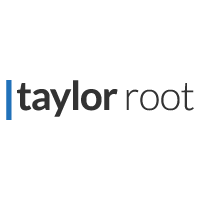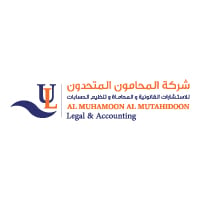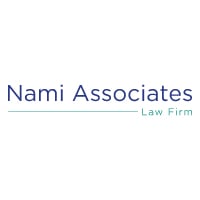

Chief Legal Officer & Board Secretary | Abunayyan Holding










Roy Stephan
Chief Legal Officer & Board Secretary | Abunayyan Holding
How have you integrated technology into your legal processes, and what impact has this had on efficiency and compliance?
In today’s rapidly evolving legal landscape, technology plays a pivotal role in transforming traditional processes into more efficient, transparent, and compliant operations. During my time in the UAE and KSA, I led the integration of several advanced legal tools, including the HighQ Contract Management System, Serengeti litigation software, and Babil legal software. Additionally, in collaboration with the ICT department, we developed the OpenText tool, enabling seamless tracking of workflows for contracts and legal cases. These technologies were successfully integrated with platforms like DocuSign, PLC, and Outlook 365, creating a unified and efficient ecosystem. Initially, there was resistance from management, as they were accustomed to manual processes and skeptical about automation’s potential impact. Concerns centered on data security, loss of control, and the complexity of transitioning to new systems. However, as global trends leaned toward automation, external auditors began stressing the importance of adopting technology to enhance transparency, compliance, and accountability in legal operations. This external pressure, combined with the risk of non-compliance, helped shift management’s stance toward embracing legal technology. Once implemented, these tools significantly transformed our legal processes. The HighQ system streamlined the contract lifecycle, reducing review and approval times, while Serengeti provided real-time tracking for litigation, ensuring tasks and deadlines were efficiently managed. The OpenText tool, developed in-house, helped us monitor workflows, fostering greater accountability and proactive risk management. Integrating these tools with DocuSign allowed for faster, more secure electronic signatures, while Outlook 365 ensured seamless communication. PLC’s resources enriched our legal knowledge, further enhancing compliance and decision-making processes. Over time, the benefits of automation became evident. What was once met with skepticism gained full management support, as the legal team demonstrated increased efficiency and reduced administrative burdens. With more time freed for strategic legal work, the value provided by the team grew. Furthermore, the automation ensured robust compliance, with clear audit trails and reduced risk of human error. Auditors and management alike recognized the improvements in both compliance and operational efficiency, validating the importance of these tools in driving future success. The integration of technology, including HighQ, Serengeti, Babil, and OpenText, revolutionized our legal processes, significantly enhancing both efficiency and compliance. What began as a challenge evolved into a critical, widely appreciated system that continues to shape the future of legal operations.
How do you measure the impact of ESG initiatives on the company’s overall performance and reputation?
As sustainability becomes a global priority, businesses must now balance financial success with environmental and social responsibilities. Boards play a critical role in driving this shift, aligning corporate strategies with ESG principles. During the 5th Arab Lawyers Forum in 2022, HE Minister Mariam Al Mheiri highlighted the UAE government’s support for ESG initiatives, including potential plan for tax exemptions for companies demonstrating tangible efforts. This raises an important question for businesses worldwide: How do we measure the impact of ESG initiatives on corporate performance and reputation?
ESG factors have evolved into essential components of corporate strategy, driven by the expectations of stakeholders—from investors to customers—who demand accountability and transparency. In response, governments, like those in the UAE and Saudi Arabia, are promoting ESG adoption through incentives, encouraging companies to integrate sustainable practices. Our own organization has invested heavily in renewable energy technologies in Saudi Arabia, including wind, solar, and green hydrogen. Several of our subsidiaries focus on environmental technologies such as desalination and zero liquid discharge, aligning with our long-term sustainability goals. Measuring the impact of ESG initiatives is essential to understanding their true value. First, these initiatives can significantly enhance financial performance. By investing in renewable energy and sustainable technologies, companies often reduce operational costs and unlock new revenue opportunities. Additionally, businesses with strong ESG ratings are more attractive to investors, leading to lower capital costs. Second, ESG efforts directly affect a company’s reputation. Regular assessments through stakeholder surveys, media analysis, and independent ESG ratings, like the Dow Jones Sustainability Index, provide valuable insights into public perception and brand image. Lastly, regulatory compliance*with ESG standards ensures legal alignment while positioning companies as industry leaders in sustainability. For example, in the UAE, companies that meet ESG criteria can benefit from tax exemptions, illustrating how regulations are driving business strategies. In Saudi Arabia, our investments in renewable energy and environmental technologies showcase our commitment to sustainability. Our subsidiaries are dedicated to creating innovative solutions in areas like desalination and treated sewage effluent, demonstrating how ESG initiatives can drive both environmental progress and business growth. As ESG becomes integral to business strategy, measuring its impact is vital. Financial performance, reputational gains, and regulatory compliance offer clear metrics to evaluate success. Companies that effectively measure and communicate their ESG achievements will not only drive long-term growth but also contribute to global sustainability goals. In today’s rapidly evolving world, ESG is no longer an optional pursuit. It’s a strategic imperative that shapes both corporate success and societal progress.
How do you approach managing legal aspects during periods of instability or crises, and how does your legal strategy align with the broader business strategy to ensure the organisation’s resilience?
In industries such as investment, EPC, renewable energy, water desalination, and oil & gas, crises and instability—whether economic, regulatory, or geopolitical—demand a robust legal strategy. As Chief Legal Officer and Board Secretary, my focus is on aligning the legal function with broader business goals to ensure resilience, sustainable growth, and strategic agility. In times of crisis, legal strategy becomes a key pillar of business continuity. By embedding legal counsel across all business units, my team ensures that contracts, compliance, and risk management are integrated into daily operations. This proactive approach enhances operational excellence, secures long-term partnerships, and positions the legal department as a profit center, driving value rather than merely controlling costs. For industries as highly regulated as ours, compliance is critical to business survival and success. My role involves developing legal frameworks that meet complex regulatory demands while promoting a culture of integrity and transparency. Ethical governance, coupled with strict regulatory oversight, allows us to navigate industry-specific challenges while safeguarding our reputation and positioning ourselves for growth. To maximize efficiency, I’ve incorporated AI and data analytics into our legal processes, automating contract reviews, regulatory compliance, and risk assessments. This not only reduces costs and response times but also allows the legal team to focus on strategic priorities, enhancing our contribution to the company’s bottom line. Beyond regulatory compliance, fostering a company-wide culture of integrity ensures that every business decision is rooted in legal soundness. This proactive approach helps us respond swiftly to regulatory shifts or market disruptions, allowing the company to remain agile and resilient. In periods of instability, the legal function must do more than manage risks—it must act as a strategic growth enabler. By aligning legal strategy with business goals, leveraging technology for efficiency, and promoting ethical governance, we build a resilient organization that not only withstands crises but thrives in them.
What are the main cases or transactions that you have been involved in recently?
In my recent role, I have been deeply involved in several major transactions and JVAs across a diverse range of sectors. These include a significant JVA for solar system manufacturing, another for facility management, and a JVA for the production of electric transformers. Additionally, I have played a key role in negotiating and overseeing large EPC contracts for mega projects in Saudi Arabia, particularly in the renewable energy, and desalination. These projects are pivotal for driving sustainable energy solutions and expanding critical infrastructure in the region.
Chief Legal Officer & Board Secretary | Abunayyan Holding
Head of legal department, director legal and corporate affairs - board secretary | Intigral
Chief legal officer, director of compliance MENAT and secretary to the board | Middle East Communications Network